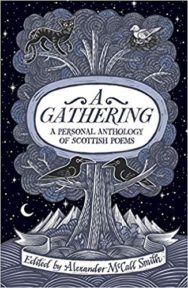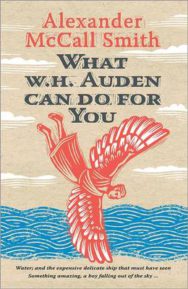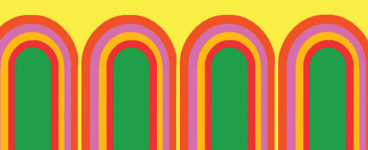‘We’ll mak siccar! Against the bashing cudgel, against the contemptuous triumphs of the big battalions…’
David Robinson reflects on the poet’s role in difficult times as he talks to Alexander McCall Smith about his recently published poetry collection.
A Gathering: A Personal Anthology of Scottish Poems
Edited by Alexander McCall Smith
Published by Polygon
The other day, I found myself reading John MacLeod’s book River of Fire (Birlinn, 2010) about the Clydebank Blitz. To remind you of its scale, in two nights in March 1941, German bombers caused damage so extensive that of the town’s 12,000 dwellings, only seven were undamaged. Four thousand were completely destroyed, and 4,500 were uninhabitable for months. More to the point, 528 people were dead, 617 seriously injured, and the next morning thousands of the 35,000 newly homeless stumbled along the Dumbarton Road towards Glasgow.
We were in the middle of a war. Democracy and national survival were at stake. Like everyone else, Scotland’s poets had a decision to make. What were they going to do? Were they going to fight fascism or not? What would I have done – and what would you?
My point here isn’t to question the morality of pacifism in 1941 (that’s a completely different discussion) but to imagine the strength of character it would have taken to go against so many of your compatriots at a time like that. In March 1941, the US and the USSR were still not involved in the war, Japan was taking control of much of China and the Far East, the Germans had the Brits on the run in Africa, had overrun Europe, and Hitler had just ordered a big expansion of Auschwitz. The overwhelming majority of Scots were not deterred by any of that but wanted to fight on.
But look at the poets. Norman MacCaig was a conscientious objector; so was Edwin Morgan. Hugh MacDiarmid was conscripted to work in a Scotstoun munitions factory but wrote virulently anti-English poetry in private, and Douglas Young was imprisoned for refusing conscription. In other words, even when Scotland was at its most united – as it surely must have been when its towns and cities were being bombed, and Britain was isolated and faced a credible threat of invasion – many of its leading poets went against the popular flow. They made it clear that they didn’t want to fight. At such a time and place, rebelliousness like that takes guts.
This thought crossed my mind only because at the same time as reading MacLeod’s River of Fire, I was also reading A Gathering, Alexander McCall Smith’s personal anthology of Scottish poems, which has just been published by Polygon. How Scotland’s poets reacted to the Second World War isn’t mentioned in the book in anything other than the brief biographical notes at the end. But it did make me wonder whether McCall Smith thought Scottish poets were a particularly rebellious bunch. So – on National Poetry Day, as it happens – I asked him.
‘Auden talked about the effects of society on the poet,’ he pointed out. ‘He said that ‘Ireland hurt Yeats into poetry’. And you can say that about many poets, that they are hurt into poetry because they contemplate the world and they see its contradictions and its difficulties.’
In Scotland’s case, he added, there is another factor. ‘Until the re-emergence of the Scottish Parliament it seemed to many people that Scotland had a somewhat distant legislature and Scotland may have found difficulties in expressing herself through such an institution. You find that very strongly in the 20th century Scottish Poetry Renaissance led by MacDiarmid who is a classic example of that. He was a rebel against virtually everybody.’
A Gathering takes the Second World War as a cut-off point: it doesn’t include anyone born after it. This, says McCall Smith, was ‘just a matter of setting limits to make the anthology do-able, and not a matter of my own personal taste’. Another reason, one suspects, might well be that the famously polite bestselling author might not have wanted to make invidious choices among contemporary poets.
Of the poets included in the book, he met MacCaig, MacDiarmid and Hamish Henderson. The latter seems to have made the greatest impression. ‘He was tall, rather ungainly man,’ he writes, ‘a bit like a well-built scarecrow, as he often wore a hat that no self-respecting scarecrow would consider wearing. He smiled at people with gentle, wry smile, exposing teeth that seemed to go in all sorts of directions. He was sitting on a table, singing, unaccompanied, that great poem he wrote, ‘The 51st Highland Division’s Farewell to Sicily’. That simple tune, so easy to remember, never leaves you once you have heard it. It breaks the heart.’
That last phrase is, of course, an echo of what MacDiarmid said ‘the little white rose of Scotland’ does too – almost as if McCall Smith is acting as a retrospective peacemaker between the two flyting poetic rebels who can, as Tim Neat wrote in his Guardian obituary of Henderson ‘be seen to stand as the twin piers of revolutionary thought in modern Scotland: MacDiarmid the small ascetic, atheistic Presbyterian, Henderson the Falstaffian Episcopalian libertarian.’
Of the two, my own sympathies are with Henderson. His rebelliousness took many forms: not only turning down the OBE offered him by the Thatcher government but in writing poems and songs that consistently show him thinking internationally, far beyond his tribe (as well as lovingly within it). ‘Seven Good Germans’, for example, is full of empathy for dead enemy soldiers left behind in the North African desert. And in ‘Elegies for the Dead in Cyrenaica’ he adds ‘that we should not disfigure ourselves/With villainy of hatred’. In the middle of war, it’s easy enough to succumb to disfiguring hatred: it takes a certain rebelliousness of mind not to.
Auden has long been McCall Smith’s favourite poet – he has even written a book about him – not just because of his technical mastery and his ability to make us change the way we see things, but because ‘he understands the notion of civilisation, and that makes him invaluable in these dark times’. The Scottish writer who comes closest in this regard, he says, is Ruthven (pronounced ‘Riven’) Todd (1914-78) whose poem ‘In September 1937’, included in the anthology, is a particular favourite.
‘It’s a poem of absolute beauty,’ McCall Smith says. ‘In it, he is thinking about a previous year in which he was back on Mull, stacking peat, where ‘the hills /Were brown lions, crouched to meet the autumn gales’. The poem is haunted by a growing sense of crisis – and I think that poetry of that sort resonates with us today because there is a slight whiff of the 1930s about our own age.’
Auden called his 1947 ‘baroque eclogue’ The Age of Anxiety. Few read it these days, but the title endures. It fits our decade just as it did the 1940s or that ‘long, dishonest decade’ that preceded it. In these anxious, hate-filled times, writing and thinking beyond our own social media silos is a necessary rebellion, and I hope we can still rely on our poets to provide it.
A Gathering: A Personal Anthology of Scottish Poems, edited by Alexander McCall Smith, is published by Polygon, priced £14.99.
ALSO IN THIS ISSUE

 It’s Only the End of the World
It’s Only the End of the World
‘“I owe you an explanation?” The boy’s eyes were like saucers. “When did my mum turn into Jackie Cha …















